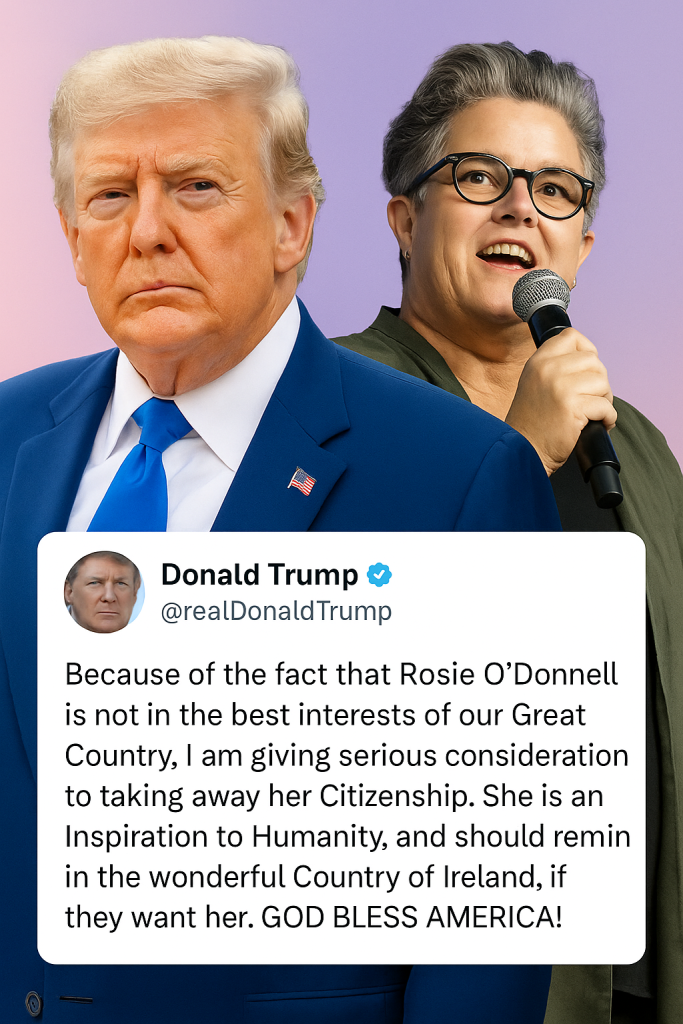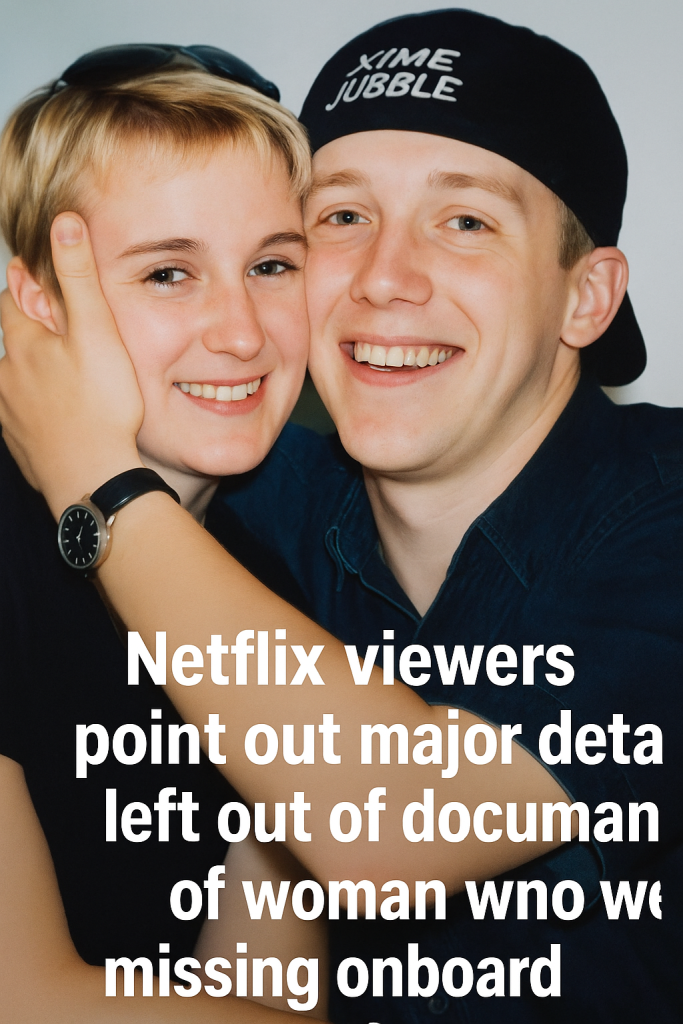In a startling and provocative statement that has ignited intense debate online and in political circles, former President Donald J. Trump has sharply criticized actress and TV personality Rosie O’Donnell, branding her a “threat to humanity” and revealing that he is seriously considering revoking her U.S. citizenship.
Trump, who remains a highly polarizing figure with a penchant for inflammatory remarks directed at his critics, made his comments in a recent social media post that quickly went viral. In the message, Trump asserted that O’Donnell’s actions and public statements are “not in the best interests of our Great Country,” and ominously hinted at exploring legal avenues to strip her of citizenship—a move that experts say would be unprecedented and legally controversial.
Context of the Escalation
The feud between Trump and O’Donnell dates back over a decade, with exchanges often bitter and personal. Rosie O’Donnell has been an outspoken critic of Trump, particularly during and after his presidency, condemning his policies and rhetoric. This latest outburst appears to be the culmination of ongoing animosity, though it marks a significant escalation in tone and threat level.
Observers note that while Trump’s rhetoric targeting celebrities and political adversaries is a familiar hallmark of his public persona, the suggestion to revoke citizenship represents a new and alarming dimension. Legal analysts emphasize that citizenship revocation is typically reserved for very narrow circumstances, such as fraudulent naturalization or acts of treason, and that using it as a political weapon against a domestic celebrity would challenge fundamental constitutional protections.
“The Practical and Legal Challenges”
Experts point out that the U.S. Constitution and federal laws provide strong safeguards for citizenship rights. Any attempt to revoke citizenship on broad or political grounds would likely face swift legal challenges. Furthermore, since O’Donnell was born in the United States, she is a natural-born citizen, making such an action even more complicated and controversial from a constitutional law perspective.
Political analysts suggest Trump’s remarks may be more rhetorical flare designed to energize his base and dominate media cycles rather than an indication of concrete legal action. Nevertheless, the aggressive language fuels a continuing pattern of divisiveness that underscores the fractious political climate heading into the 2024 election season.
Reactions and Implications
Reactions to the Trump statement have been swift and varied. Supporters applaud the former president for his uncompromising stance, viewing it as a strong rebuke of a long-time critic. Conversely, commentators on social media and in political spheres have condemned the remarks as dangerous and unbecoming of a potential future leader, warning that targeting opponents with citizenship revocation rhetoric threatens democratic norms and free speech.
Rosie O’Donnell herself has not issued an immediate response, but her representatives have previously stood by her outspoken activism and criticism of Trump, emphasizing her right to free expression.
This clash highlights the increasingly blurred lines between celebrity, politics, and social media, as personal vendettas take center stage in public discourse. It also raises important questions about the limits of political rhetoric and the protection of constitutional rights in a deeply polarized America.
As the 2024 presidential campaign season intensifies, the implications of such incendiary statements will continue to reverberate, underscoring the volatile intersection of fame, politics, and legal boundaries in contemporary U.S. society.



